Bojack Horseman: Balancing Humor and Dark Themes
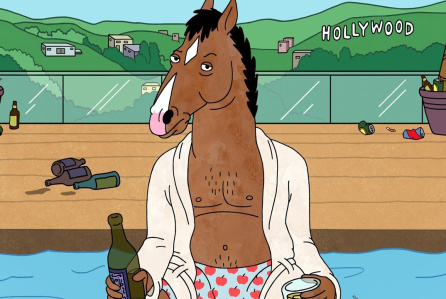
It’s no secret that humor is almost always based on some form of misery. Slapstick is based on physical pain, insult based comedy is driven by personal offense, and even the humble knock-knock joke makes a foil out of the respondent. However, despite this close relationship between comedy and misery many comedic outlets, especially television, fail to strike a balance between the two. This is especially apparent when comedies deal with particularly a heavy theme such as death, drug addiction, the decay of relationships, and depression. The main issue seems to be that one-off jokes on dark subjects are relatively easy to handle whereas a thematic analysis of dark issues in a comedy setting is much more difficult. Often, TV-comedies dealing with a heavy theme fail to incorporate these kinds of topics without them feeling out of place. This frequently involves not giving the subject the analysis it deserves, sacrificing the comedic elements of the show, or any number of issues that can arise from failing to strike an appropriate balance.
This is where the show Bojack Horseman truly excels. Bojack Horseman is a continuous narrative comedy produced by Netflix. It follows its titular character, a washed-up 90s sitcom actor, as he attempts to revitalize his career and achieve happiness. The show, like many other comedies, draws humor from several miserable sources such as substance abuse, celebrity culture, and death. However, unlike most comedies, Bojack Horseman has a strong central theme of sadness. While not necessarily about depression in the clinical sense, the show frequently outlines the crushing sadness and self-loathing of three of its five principle characters. This includes discussions over toxic personalities, self-deceit, and a central theme of failing to find fulfillment. Part of the brilliance of the show is that it can incorporate these dark themes in depth without disrupting the comedic elements. The show achieves this in three different ways.
The Balance of Characters
The most prominent strategy the show uses to address dark themes is through balancing cynical characters with positive ones. As noted previously, three of the show’s five principle characters, Bojack (Will Arnett), Diane Nguyen (Alison Brie), and Princess Caroline (Amy Sedaris), are cynics who struggle with issues related to the central theme of sadness. Conversely, the two other principle characters, Todd Chavez (Aaron Paul) and Mr. Peanutbutter (Paul F. Tompkins), are overwhelmingly positive characters with extremely optimistic world views. This relatively even split between optimistic and pessimistic characters gives the show’s writers the ability to easily shift focus to and from dark characters and storylines, often going from addressing the show’s central theme of sadness, to lighter or more optimistic material. The last two episodes of the second season are a good illustration of this strategy in practice. The second last episode is a Bojack-heavy episode, which, (spoiler) amongst many heavy themes of teenage drinking, near-statutory rape, and infidelity, outlines his inability to escape himself and his past as he attempts to start a new life and find fulfillment in New Mexico. All told, it is a very dark episode that, on its own, could be considered a dark comedy or flat out drama. However, the next episode, which focuses on Todd, counterpoints this tone with a more upbeat, yet still biting, criticism over improv comedy and Scientology whilst also providing more positive conclusions for other principle characters. This ability to shift focus to either positive or cynical characters and their storylines allows the writers the ability to regulate tone throughout episodes, seasons, and the whole series.
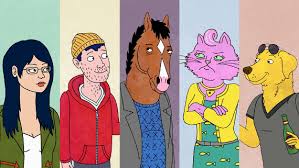
Pacing
Another approach taken, and used to perfection by the creators of Bojack, is the proper use of pacing. Proper pacing is an aspect of media that is key for comedies dealing with dark themes. One of the more ubiquitous examples of poor pacing in these situations is the “very-special-episode” sitcom trope. The “very-special-episode” usually follows regular sitcom format and pacing until a jarring tone change involving some accessible hot-button issue like drugs, alcohol, or bullying. While this problem is most obvious in the “very-special-episode” context, the core issue of jarring pacing shifts is still present in many otherwise critically and audience acclaimed series. The inverse of this issue is almost as problematic, as spending too much time in a slow or serious tone can disrupt many opportunities for comedy. Bojack Horseman is able to regularly navigate between these two problems.
The show has a great sense of when and how to slow down the pacing of a scene or an episode. For instance, the aforementioned second last episode of season two is a heavy episode with an appropriately heavy climax (spoiler) of Bojack attempting to sleep with his friend’s daughter. To get to this climax, the episode goes from regular pacing, to regular pacing with dark humor, then slowing pacing, into a drama sequence that ends with the climax of the episode. This incremental slowing of pacing prepares the audience for darker sequences and in doing so gives them more weight and entertainment value. The show is also usually able to navigate out of these heavy sequences with tact. Frequently, the show will use the end of the episode, the beginning of the opening credits, a new plotline, satisfactory conclusions, or appropriate joke-stabs to gear back into regular comedy pacing. There are a few times when Bojack resorts to off-beat tension-breaking one-liners but they are few and far between.
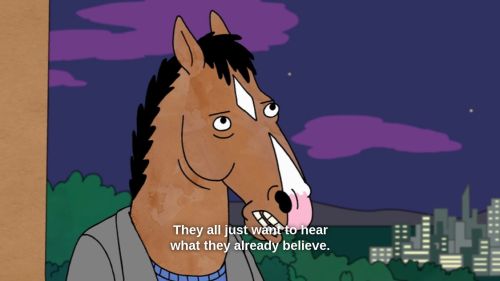
Realistic, Funny, and Well-Done Dialogue
The final asset used by Bojack to deal with heavy themes in a comedy is its realistic, funny, and well done dialogue. Between the skill of the writers, directors, editors and actors, the series is able to present witty yet grounded dialogue that is always in keeping with the characters. This is not only important to the overall quality of the show, but also its ability to deal with dark themes. Many comedies that do not handle dark themes well usually face their most obvious problems in their dialogue. In many instances, the more serious parts of a given episode will have dialogue that is wooden, completely devoid of humor, and/or inconsistent with the characters involved. Several examples of this can be seen in the otherwise high-quality comedy How I Met Your Mother. For instance, the character of Barney Stinson (Neil Patrick Harris) is, for all intents and purposes, comic relief within a comedy, yet when the character is placed in a serious situation, the dialogue is almost always uncharacteristically serious, and as a result makes the character seem more like a vessel for the writers than a realistic person.
Bojack, conversely, has an excellent grasp on how different people and characters react to uncomfortable situations, namely that many cope with humor, optimism, passivity, or many other ways other than complete immersion in the seriousness of the situation. For instance, Todd, a goofy slacker character, deals with (spoiler) Bojack sabotaging one of his projects by quickly and passively brushing it off in a way that makes sense for a goofy slacker rather than a drawn out scene that discusses the sabotage in overly dramatic, unrealistic ways. This is also prominent in many of the serious Bojack scenes wherein the character uses humor as a response mechanism to uncomfortable events. These moments infuse comedy into discussions of the show’s dark themes in a way that helps maintain the balance between drama and comedy while also feeling natural to the characters involved.
By analyzing these various strategies, it is clear that Bojack Horseman serves as a shining example of how TV comedies can address dark themes. The show addresses these kinds of themes with intriguing depth while tactfully maintaining a good level of comedy throughout. As such, it is a must-watch for anyone looking for a heavier, well thought out comedy. Seasons 1 and 2 are available on Netflix, with season 3 set to be released summer 2016.
What do you think? Leave a comment.
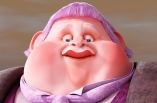
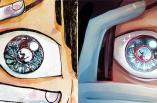
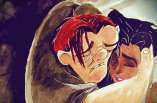

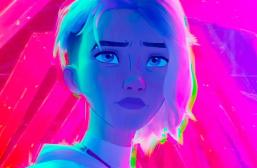
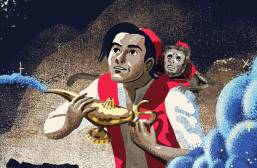
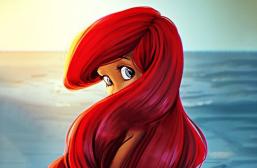
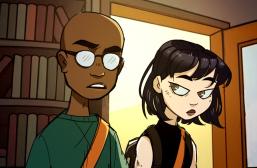
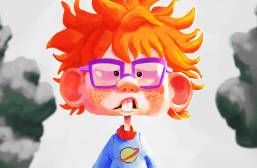
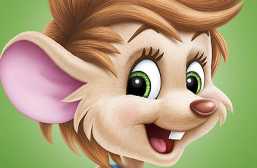
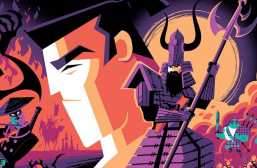
This show is not for stupid people.
I enjoy watching Family Guy and American Dad, but the humor in those shows all revolves around stereotypes and sexism and is often borderline offensive. I love how Bojack Horseman is different in that way.
Wow, great analysis! This show sounds incredibly fascinating. I might just check it out.
Bojack definitely feels like something that would never work on network TV, and it uses it’s episodes to explore some very dark themes in a way that makes the characters seem both pathetic and sympathetic. The humour in the show is really dark at times, but that helps get the message through a lot more as it is easier to laugh at something that makes us feel uncomfortable than to have it smash us on the face repeatedly. The reason it works so well though is because of the sharp writing and the true focus on the characters themselves.
Anyway, great write up!
Honestly I think the funniest thing about Bojack is it’s meta-critique on Hollywood and the god-like status we affirm in celebrities. Plus all the animal puns.
Not just really funny, but like, legitimately good. This is one of my favorite animation series.
I wish that Netflix in general didn’t drop a bunch of episodes once a year, because I have no self control so I binge watch for a week and have to wait a year for a new season… But that’s my fault.
For what its worth, it is a series worth re-watching a couple times. A lot of times there’s so much to take in at any given moment of the show that good pieces of writing, episode to episode jokes, and many of the animation puns can be looked over.
I’m going to download it and watch it now. Thank you.
I assumed it was just going to be another silly cartoon with no real purpose beyond a few laughs, a distraction from real life for half an hour at a time… I was wrong!
“Humor is a rubber sword – it allows you to make a point without drawing blood.” -Mary Hirsch
Comedians are able to take the audience to deeper places philosophically because of their ease into topics and entertainment appeal. BoJack is a prime example. Thank you for this reflective piece!
Thanks! I kind of touched on it in the article, but one of the things that makes the serious points in the show stick is the comedy. I think its a combination of what you said about humor opening audiences up, a sort of “sad-clown” phenomenon (a striking contrast between drama and comedy), and that humor in the face of serious issues is both adds to realism and engages the audience further.
Horseman is hilarious!
This show is incredibly deep, and it achieves this in an interesting way.
BoJack’s life simple a mess hahahaha I love it though.
The best part is we can all binge watch on Netflix rather than waiting weekly.
Extremely clever series and there is in fact a true meaning to the story, and that is what really sets it apart.
I absolutely love Bojack Horseman and the way it balances comedy and dark themes. I haven’t seen it yet, but I hear that Moral Orel does the same.
This show is honestly amazing.
I haven’t seen anything like this in a long time. Great show.
Great! I really think that the show is taking full advantage of how it is being aired (netflix). Nice article about one of my favourites satires of Hollywood’s lifestyle.
I loved this show. I agree with you. One thing that I might add is the balance of type of jokes. Sometimes, they make philosophical jokes with great observations, like the picture you posted: They all just want to hear what they already believe. It becomes almost didatic humor. The type of CK or Minchin’s comedy.
On the other hand, they make very stupid, simple, yet funny jokes. The ones that I particularly love are the ones where the animal-humans in the series behave purely like animals. The owl starts to fly, the doves crash on the window, Mr. Peanauttbutter is a good dog, etc. I laughed so hard at these jokes, even though I enjoyed more the first type of jokes.
Good job on your analysis.
Great analysis! Bojack Horseman is one of my favourite animated shows because of its’ wit and quick pacing.
I think this is an incredible show! Very nuanced and clever writing and I find myself always watching for the art historical nods in ever episode. The aesthetic of the show is like a crazy seductive acid trip and each episode seems to feature a spoof on some famous canonical painting, something I love and always get a kick out of!
I love it when comedies have deep undertones like this.
A great analysis. One thing I love about the show is they never put themselves in a rut with just one type of joke. They have silly jokes and amazing puns which balance out the severe dramatic nature the show takes on, especially by the end of the last season. Yet they also excel at philosophical and didactic jokes. It has a little bit of niche humor for everyone provided everyone who watches loves dark, realistic humor. The show lives in balance.
Still haven’t watched it. On my list though.
Well that’s a great analyst.
One of my favorite elements of Bojack Horseman is the show’s use of animal characters as subtle metaphors… or not. Sometimes a character is a lemur for no other reason than that they are a lemur. But sometimes a character as a manatee is a subtle jab at the character being too fat, or in the case of Mr. Peanut Butter, his optimism is symbolized in his being a dog.
The dialogue is probably one of the best things about the show and what really makes it work and stand out. It’s genuine, relatable and incredibly consistent. The show somehow manages to make the viewer feel deeply by exploiting two very drastically different emotions, joy and pain.
Bojack doesn’t just address dark themes it runs you right into them and holds your face right up to them!! That moment on the boat in Season 2… I literally couldn’t believe it. A brilliant article here mate – well written and considered! Top work!
Nice article! I think a lot of the jokes in the show, from the clever wordplay to the puns and slapstick (birds hitting windows), are there to take the edge off the darkness and keep you around so you don’t just feel terrible after watching
Definitely one of my favorite shows
I love this show. I was blown away by how genuine and ambiguous it was. I almost feel ashamed for thinking at first it was just another Family Guy clone.
Bojack Horseman might just be the most iconic half-man half-horse ever to appear in a Netflix original.
But seriously, there’s not a person alive who could watch this show without relating to it. The writers have managed to perfectly capture humor. Just like Bojack and Diane, we all use humor in different ways and indifferent situations, but always for the same reason: it let’s us talk about our misery with kid-gloves on. People joke about the things that hurt and upset them, only occasionally that real pain slips through.
This show really has that figured out, and manages to keep us laughing as it confronts us with some of life’s most painful experiences. Every episode manages to get me to stop taking it seriously and then punches me right in the gut.
Great article! One of my favorite aspects of this show is how they successfully shed a comedic light on the dark realities of life. Also the animal puns are great every time.
Bojack Horseman is such an incredible show that’s been nearly impossible for me to explain without making it sound utterly ridiculous or like the most depressing thing on earth, so I applaud you for explaining it so well. My only problem with the show has been the amount of people willing to put up with Bojack’s destructive behavior. Although the show presents a fairly realistic depiction of depression and substance abuse, it seemed to me that the damage Bojack has inflicted on the lives of everyone around him was always overlooked. With the example of Todd brushing off Bojack’s sabotage of his rock opera, I thought that was a little unfair to Todd as a character. The sabotage was supposed to show us how Bojack really depends on Todd or any other kind of social contact, but in the process just showed that Bojack is benefiting from others whilst actively ruining their quality of life. Because Todd is so passive, I think it would have been even more powerful to have him stand up for himself and make Bojack see the consequences of his actions.
In terms of dark comedy in general, I just wanted to make a comparison to the new Amazon show “Fleabag”. I think this is the only show, other than Bojack Horseman, where after I’m done laughing it leaves me sitting for a minute and contemplating what just happened and what it says about the characters. The eponymous fleabag isn’t as outwardly destructive (or mean) as Bojack, but in the 6 episode run we see all her little ticks and quirks snowball into a pattern of unhealthy behaviors. Unlike Bojack, the show ends on the darker note and leaves that for the audience to stew in until the next season. Fleabag follows a different progression than Bojack, rolling towards the darkness rather than a continuous undertone, yet it is equally deft with it’s handling of dark comedy. If you don’t laugh, you’ll cry.
Bojack is definitely worth watching. Being able to nail down the tone and jokes that shows of different eras that the show draws from is an amazing feat.
Personally a running gag that still gets to me is how a character actress throughout the series continues to come back when they were put in a situation that they shouldn’t have come back from.
Bojack Horseman is a fantastic example of what comedy needs at times to balance lightheartedness with realistic, often confronting, overtones. I feel that even though the premise of Bojack Horseman blurs the line between real-world fantasy and realism, the show is so relatable since the themes and the characters have such grounded problems that you can’t help to feel the same struggles.
This show is definitely one of my favorites, but definitely conjures up my own life crises. It certainly challenges what we are accustomed to seeing as “cartoons”.
I have just started watching this series after my brother recommended it to me. So far I’m really enjoy the way it highlights contemporary societal issues through comedy. In a similar fashion to Archer, although perhaps less crudely, Bojack offers an insight into people questioning existentialist nature of existence. I wish we could have studied this TV show rather than exploring the principles of existentialism through Fly Away Peter during high school.
This show, alongside Rick & Morty, set a new bar for how adult animated shows should be handled. I love South Park, but its style and impact can’t be replicated, and as a result, its results are often stale and ineffective. Bojack is a show that I honestly felt skeptical about, but after three seasons, I couldn’t recommend it more. It’s a fantastic character-driven work.
This show makes me laugh AND cry more than anything else on television. A truly insightful and nuanced story about mental illness and silly animal puns.
I love the show and somehow I never put two and two together about how the balance of cynic and optimistic characters keeps it from getting overly morose. This is a really interesting take; well written.
Bojack is timeless and yet today your article stills true and actual! And it is proved with the other seasons how the humor and the dark themes are balanced in a way that makes Bojack even more complex. Who knows he finally became “more a man than a horse”.